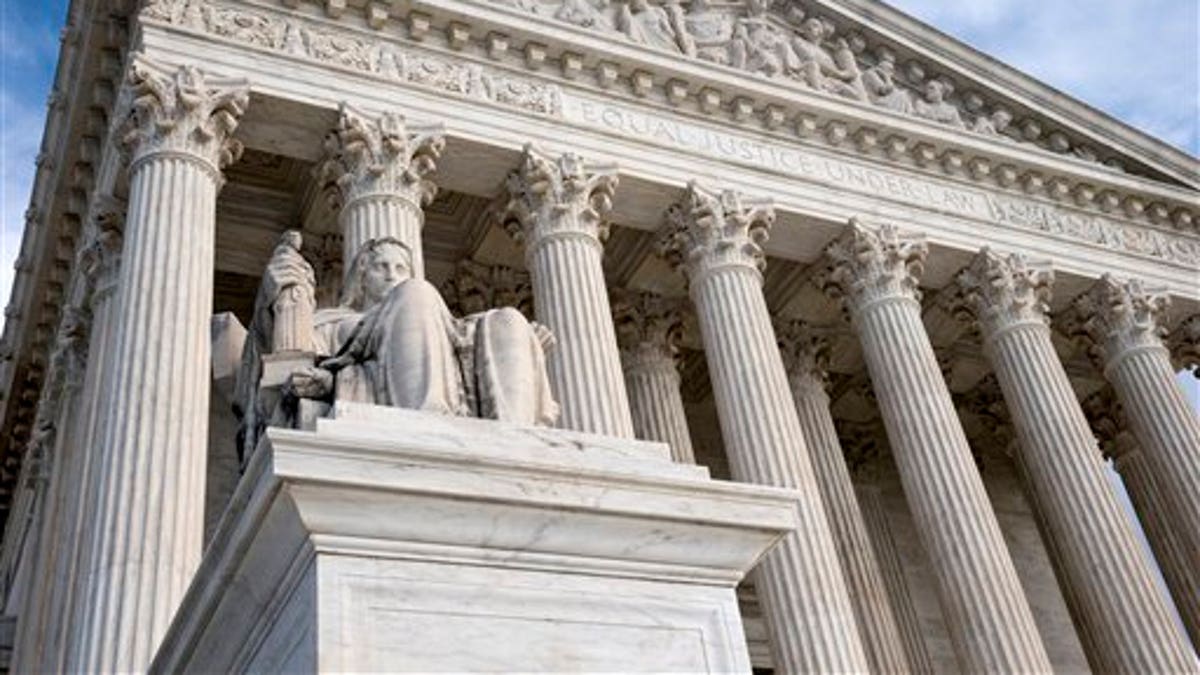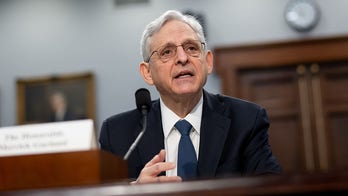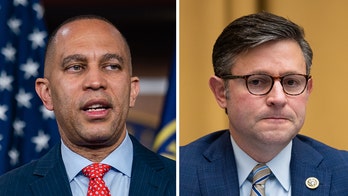
FILE: Feb. 17, 2016: The Supreme Court building, in Washington, D.C. (AP)
For decades, the Pierce family has operated a peat-mining business that involves draining muddy bogs, scraping away the plant material, drying it, then selling it for use in golf greens and athletic fields.
The company hoped to add hundreds of acres to its operation. But in 2011, the Army Corps of Engineers announced the Minnesota land in question was connected to the Red River, roughly 120 miles away, and would be subjected to the Clean Water Act permitting process.
The property rights dispute landed Wednesday in the Supreme Court, where Justice Anthony Kennedy called the federal act “quite vague in its reach, arguably unconstitutionally vague ... ."
The property owners are fighting for the right to challenge the corps’ findings in federal court, while the corps argues the landowners cannot do so without going through a time-consuming permitting process that will likely cost hundreds of thousands of dollars.
“We're talking about the effect, direct effect on millions of land owners nationwide, couldn't be a bigger precedent,” said the plaintiffs' attorney, Reed Hopper of the Pacific Legal Foundation.
With the exception of Justice Elena Kagan, the court seemed nearly unanimous in its skepticism about whether the property is indeed “wetland” and subject to the act.
Justice Ruth Bader Ginsburg called the process “arduous and very expensive.”
“It’s going to take years and cost ... a lot of money," she also said.
Deputy Solicitor General Malcolm Steward, the federal government’s attorney, argued the landowner could simply roll the dice by moving ahead with developing the land despite the court’s findings.
That prompted Justice Stephen Breyer to respond: “Then he goes to jail.”
A decision is due by the end of June.
Kevin Pierce, one of three land/ business-owners in the case -- U.S. Army Corps of Engineers v. Hawkes Co. Inc. -- has not been willing to take such a risk.
"We could have expanded a couple of years ago and different things,” he said outside of the court room. “But we've been held up because of the threat of high fines and criminal charges and all of the things that come out of the corps and jurisdictional determination.
Critics of President Obama’s Supreme Court nomination, Merrick Garland, say the case is the kind they’re worried about if Garland is appointed to the high court, considering his overwhelming deference to federal agencies.




